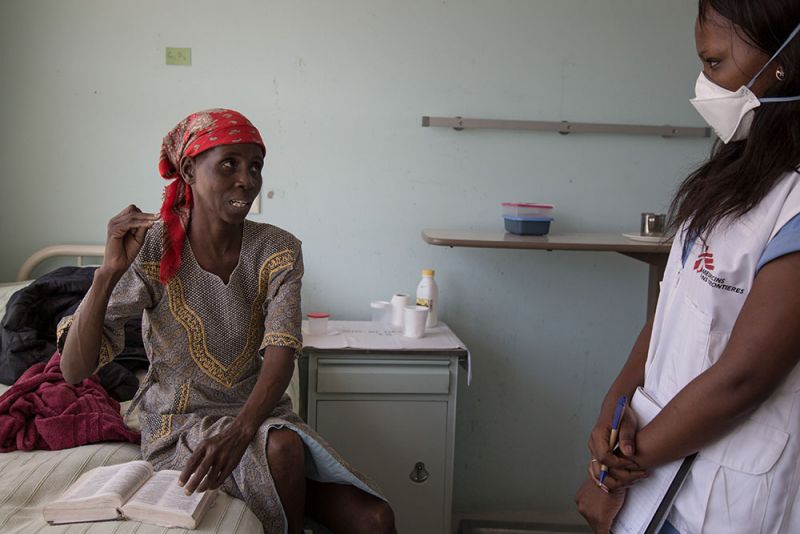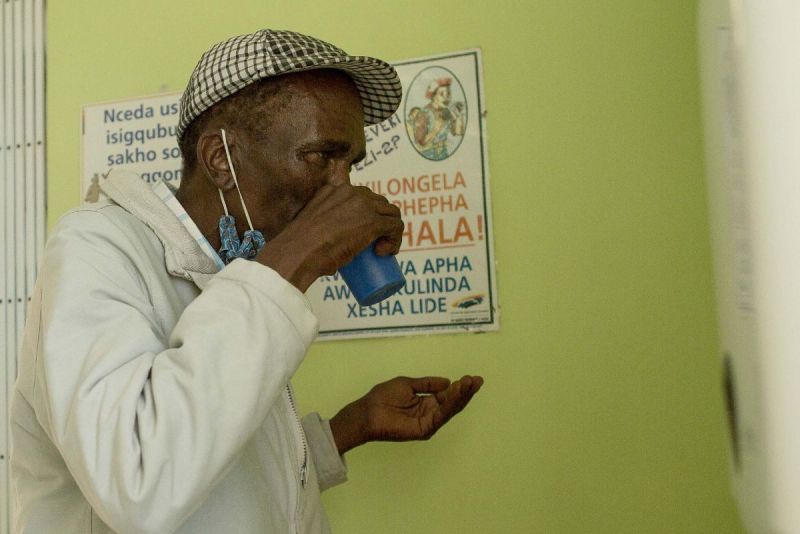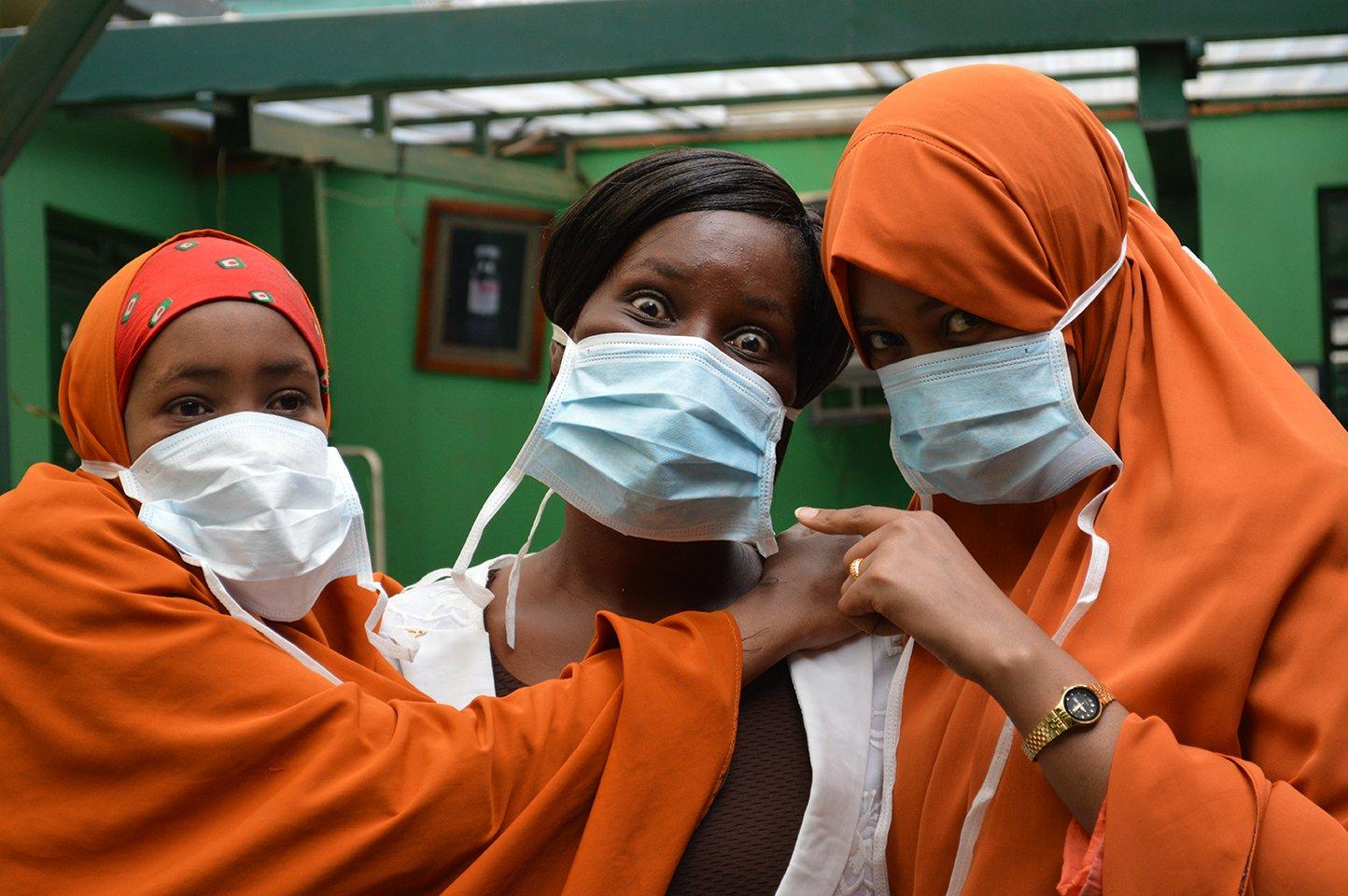Ahead of the first-ever Global Ministerial Conference on ‘Ending TB’ in Moscow, the international medical humanitarian organisation Doctors Without Borders (MSF) and the Stop TB Partnership called for countries with high burdens of tuberculosis (TB) to implement the latest international treatment and testing standards by World TB Day, 24 March 2018.
TB remains the world’s top infectious disease killer, with 1.7 million deaths in 2016. According to the latest World Health Organization (WHO) Global TB report, progress in diagnosing and treating all forms of TB is stalling in most countries: more than 4.1 million people with TB remained undiagnosed or unreported in 2016, and only one in five people with multidrug-resistant (MDR–TB) were started on treatment. Of those people, just over half were cured.

South Africa faces one of the highest burdens of TB in the world, with an incidence of around 438,000 cases last year alone. Of that number, at least 20,000 are infected with some form of drug-resistant TB (DR-TB), which means that it is resistant to first lines of treatment.“Why do we continue to remain out of step when it comes to testing people for TB, when it’s the critical first step to treating this curable disease and preventing its spread?” said Dr. Francis Varaine, TB Medical Advisor at MSF. “Governments urgently need to step up, to stop people from needlessly dying of TB.”
According to a survey in the third edition of ‘Out of Step’, a joint report by MSF and the Stop TB Partnership that reviews TB policies and practices in 29 countries—which account for nearly three-quarters of the global TB burden—40 percent of people with TB remain undiagnosed. Only seven of the countries* have made Xpert MTB/RIF, a rapid molecular test, widely available for diagnosing TB. Newer medicines and regimens for treating drug-resistant (DR-TB) have demonstrated better outcomes than today’s standard regimens, which cure just half of people with MDR-TB and only 28% of people with the even more deadly extensively drug-resistant (XDR-TB). Seventy-nine percent of countries surveyed include the newer drug bedaquiline in their national guidelines, and 62% include delamanid**, but globally, less than five percent of people who could have benefitted had access to these drugs in 2016.
This week, MSF and the Stop TB partnership released the report ‘Out of Step in Eastern Europe and Central Asia’ (EECA), presenting the results of an eight-country*** survey of national TB policies and practices. An epidemic of DR-TB is on the rise in Eastern Europe, where nearly half of all TB cases are MDR and the number of people with DR-TB is increasing by more than 20% each year. Among the countries surveyed, 75% have adopted a policy to use rapid molecular testing instead of older, slower testing methods, yet only half of those countries are actually using the test widely. An estimated 46,000 people with DR-TB in the EECA region went undiagnosed in 2015.

“Despite its deadly toll, most countries lag behind in implementing the existing and new tools that are available to tackle TB,” said Lucica Ditiu, Executive Director of the Stop TB Partnership. “The WHO Global Ministerial Conference is the first step for concrete, bold and measurable commitments by ministers of health towards a strong accountability framework for heads of state and governments during the UN High Level meeting on TB.”
At the Global Ministerial Conference this week, Mariam Avanesova, who was treated for MDR-TB in Armenia in 2010-2012 and represents TBpeople, the Eurasian network of people with TB experience, will hand over a petition to WHO’s Director-General, Dr. Tedros Ghebreyesus. The #StepUpforTB petition is an urgent call for health ministers in key TB-affected countries to get their TB policies and practices in line with international standards, as defined by WHO, including testing and treatment of TB and its drug-resistant forms. Initiated by MSF and the Stop TB partnership, the petition has been signed by more than 30,000 people from around the world united with people affected by TB.
“After being cured of MDR-TB, I decided to continue working in this area because I find it unacceptable that people are dying because either their diagnosis was too late and the drugs didn't work, or they simply quit because the side effects from 20 tablets a day for two years were too much,” said Avanesova. “I really want to appeal to all governments to step up to make timely TB testing and treatment accessible to all people who need it. Urgent action on the ground is what I'm hoping to see come out of this conference.”
Reading Material:
Out of Step: TB policies in 29 countries, 3rd Ed. (2017)
https://www.msfaccess.org/outofstep2017
Out of Step in Eastern Europe and Central Asia (EECA)
https://www.msfaccess.org/sites/default/files/MSF_assets/CAME/TB_Report_OutOfStepInEECA_ENG_2017.pdf
* Armenia, Belarus, Brazil, Georgia, South Africa, Swaziland, and Zimbabwe
** WHO will carry out a review of emerging evidence on the use of delamanid in early 2018.
*** Armenia, Belarus, Georgia, Kazakhstan, Kyrgyzstan, Russian Federation, Tajikistan and Ukrain
MSF is an independent international medical humanitarian organisation that delivers medical care to people affected by armed conflicts, epidemics, natural disasters and exclusion from health care. Founded in 1971, MSF has operations in over 60 countries today. MSF has been treating people with TB for 30 years. In 2016, MSF treated more than 20,000 people with TB, including 2,700 people with multi-drug-resistant TB (MDR-TB).
The Stop TB Partnership and its 1,600 partners are a collective force that is transforming the fight against TB in more than 110 countries.
Find out more about MSF's work in Russia.
